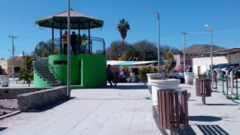**In his first Mass, Pope Leo XIV addresses societal challenges and positions the Church alongside common individuals, vowing to prioritize missionary work.**
**Pope Leo XIV's First Homily: Embrace of the 'Ordinary People'**

**Pope Leo XIV's First Homily: Embrace of the 'Ordinary People'**
**The American-born pontiff emphasizes missionary outreach and human dignity on his inaugural Mass.**
In a historic moment for the Catholic Church, Pope Leo XIV presided over his inaugural Mass at the Sistine Chapel, positioning himself firmly on the side of "ordinary people" during his first homily. The new pontiff, born Robert Francis Prevost in Chicago, highlighted the importance of “missionary outreach” in healing the “wounds that afflict our society.”
During the homily, Leo XIV condemned the loss of faith, stating that it contributed to severe violations of human dignity worldwide. He urged the church to reach out to those suffering and contrasted their hardships against the backdrop of wealth and power, emphasizing a commitment to serve those in need. His words resonated in the Sistine Chapel, attended by the cardinals who elected him, and echoed a call for unity amidst a church that faces urgent challenges regarding its future direction.
Pope Leo's election marks a significant moment, not only as the first American pope but also as a leader who carries a rich background—having spent two decades in Peru before his elevation in the Vatican hierarchy under Pope Francis. His first address from the balcony of St. Peter’s Basilica hinted at an inclusive approach, aiming to "build bridges" while still maintaining an ambiguous stance on specific policies going forward.
With Leo XIV's focus on missionary work, he aims to confront pressing issues such as social injustice, the importance of inclusion, and the necessity for a consultative approach to church governance. Whether he will continue the initiatives started under his predecessor remains to be seen, but early indications suggest his alignment with the vision of the previous papacy.
As comparisons to Leo XIII—a pope known for advocating workers' rights—emerge, analysts in the church ponder the implications of his name choice and its potential influence on contemporary issues facing the global Catholic community. Leo XIV's background suggests he might blend the pastoral approaches of both Francis and preceding popes, setting a tone for collaboration and dialogue within the church and society at large.
The interplay between faith, societal values, and the direction the papacy will take under Leo XIV starts to unfold as he takes on the mantle of leadership, offering a renewed sense of hope and purpose for over 1.4 billion Catholics globally.




















